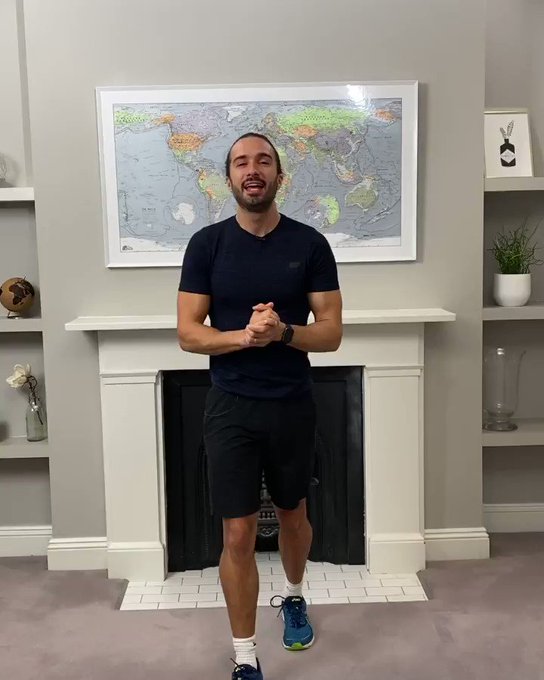 PE WITH JOE starting Monday morning at 9am on my YOUTUBE channel: The Body Coach TV
PE WITH JOE starting Monday morning at 9am on my YOUTUBE channel: The Body Coach TV  Please please share this with as many people as you can
Please please share this with as many people as you can  Our kids need this more than ever. Share it on your stories, your wall, your Twitter, whatsapp and school newsletters
Our kids need this more than ever. Share it on your stories, your wall, your Twitter, whatsapp and school newsletters 
Isolated, confused, need to connect…
Parenting in the time
of COVID-19?
Consider these 6 tips
from the WHO
- Millions of families around the world are
- isolating together or social distancing
- The World Health Organization has
- six tips to help make it a positive experience.
- It recommends spending quality time together
- and keeping things positive.
- A daily schedule and exercise can help alleviate stress.
- Be honest about what we know and
- don’t know about COVID-19.
Here are its suggestions:
1. Spend some quality time together
First up is setting aside some time to spend with each of your children and asking them what they would like to do. The suggestions include reading a book, looking at pictures, going for a walk, dancing, doing a chore together, playing games or helping them study.

2. Keep it positive
Using positive language and praising your child or teenager for something they have done well is the second tip. This will help reassure them that you notice what they’re doing and care about it.
The WHO also advises keeping it real when it comes to your expectations – asking yourself, what’s actually achievable?
“It is very hard for a child to keep quiet inside for a whole day…But maybe they can keep quiet for 15 minutes while you are on a call.”

3. Have some structure
Having a consistent daily routine will help shape your day. This might mean making a schedule that has time for structured activities, as well as free time to help children feel more secure. They may want to join in and help plan the day – like making a school timetable.
Daily exercise should play a role, too – to lower everyone’s stress levels and help dispense some of that pent-up energy. In the UK, well-known personal trainer Joe Wicks is streaming live exercise sessions for children while schools are closed.
Routine also extends to hand washing – something vital to stem the spread of coronavirus.

4. Manage acting out
The WHO recommends three steps for dealing with bad behaviour. First, if you can catch it early, redirect or distract by suggesting you go outside or for a walk. If that doesn’t work, take a 10-second pause before you respond, breathe in and out slowly five times, and then try to respond in a calmer way.
The final recommendation is to instill consequences.
“Give your child a choice to follow your instruction before giving them the consequence,” the WHO says. “Once the consequence is over, give your child a chance to do something good, and praise them for it.”

5. Take steps to manage stress
Managing stress is a big one for families stuck at home. Taking time for yourself – even if it’s just a five-minute cup of tea, meditation or exercise – can help.
“Be open and listen to your children,” the WHO says. “Your children will look to you for support and reassurance. Accept how they feel and give them comfort.”

6. Talk openly about the virus
The final tip relates to mitigating the anxiety that children may be feeling about the pandemic. We’re all exposed to so much news and constant updates via social media that it can be hard to avoid thinking about COVID-19 even for a few minutes.
Here, the WHO advocates a transparent approach – talking to your children openly about what’s going on and admitting when you don’t have all the answers.

“Check to see if your child is OK,” the WHO urges. “Remind them that you care and that they can talk to you anytime.Then do something fun together!”




